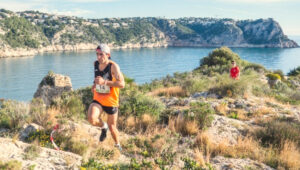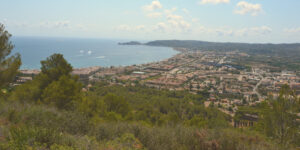POSIMED becomes most extensive network for monitoring posidonia meadows on Spanish coast
The POSIMED program is one of the oldest monitoring networks nationwide with stations that have recorded some 20 years of observations and records.

Tuesday 8th June 2021 – XÀBIA AL DÍA with Mike Smith
The POSIMED initiative, developed by the Institute of Coastal Ecology with the support of the Alicante Provincial Council, has become the most extensive network for monitoring the state of preservation of oceanic posidonia meadows off the Spanish coastline using a total of 73 sampling stations.
In addition to the control of posidonia meadows off the Alicante coast, the Institute, which will be added to the commemoration of the International Day of the Oceans, will carry out other programs in meadows near fish farms as well as monitoring of the Natura 2000 Network of Autonomous competence present in the rest of the Comunidad Valenciana. In addition, this year, as a novelty, it also includes a pioneering study on the accumulation and role of grasslands in the retention of microplastics on our coasts. ·
The POSIMED program emerged in 2001, being one of the oldest monitoring networks nationwide, with stations that have recorded some 20 years of observations and records. Since then, it has been spreading through numerous locations, expanding to the current 73 stations. The program has the collaboration of the Alicante Provincial Council, which provides the information obtained to the coastal municipalities in support of the request for blue flags, an award for which the Alicante coast is the national leader.
This project of the Institute of Coastal Ecology served to establish the POSIMED network, in which the rest of the autonomous communities collaborate with this type of grassland, serving, therefore, as a meeting point and coordination of the rest of the study networks of the grasslands of Posidonia oceanánica, culminating in 2015 with the edition of the “Atlas of the seagrass beds of Spain”, in collaboration with the Spanish Institute of Oceanography and the IUCN.
The annual results of the monitoring of the POSIMED program are transmitted to the managers of the Generalitat Valenciana, favouring the so-called Data Flow between Administrations to comply with the objectives set in the Marine Strategies and objectives of the Natura 2000 Network.
The POSIMED project, in addition to focusing from a scientific point of view, addresses public participation through a ‘Citizen Science’ program, with volunteers who receive specific training. Throughout these twenty years, nearly a thousand have passed through the programme. Currently, due to the conditions imposed by the pandemic, the participation of volunteers has been reduced to the closest collaborators. ·
Microplastic Detection
In this edition, POSIMED addresses a pioneering study focused on the detection and quantification of microplastics accumulated in the Posidonia meadows of the Alicante coast to assess the potential effect that these can have on the ‘sequestration’ of this type of pollutants, thus avoiding their entry into the food chain. As a complementary action and in order to make the population aware of the serious problem posed by plastics in the seas and oceans, the exhibition ‘+ Mar o + Plastic?’ has been developed, which will be open soon at different points along the Alicante coastline.




